On the morning of September 2, 2022, Shanghai Institute for Advanced Studies (SIAS), Zhejiang University, in collaboration with Multiscale Research Institute for Complex Systems, Fudan University and Computational Biology Innovation Centre, Shanghai Artificial Intelligence Laboratory, successfully held WAIC 2022 Forum AI for Science: Computational Biology at the Shanghai World Expo Centre.
As an important theoretical basis for biomedical research and development, computational biology has been amongst the most important applications for the development of artificial intelligence. The emergence of AlphaFold2 marks the advent of AI-based algorithms that have outperformed traditional computational methods in certain metrics, and had been utilized in a wide range of biomedical researches, including high-throughput drug molecule screening, targeted medicine, and prediction of molecule property of drug, in addition to prediction of protein structure. Since the 2019 outbreak of COVID-19, computational biology researchers have made significant progress in predicting the spread of the virus, analyzing its biological mechanism, and developing vaccines to prevent, control, and treat the disease.
In light of this, Shanghai Institute of Advanced Studies of Zhejiang University, together with a number of leading computational biology research groups in China, held an academic forum AI for Science: Computational Biology at WAIC 2022. Speakers for the Forum included Professor Michael Levitt , Nobel Laureate for Chemistry 2013; Professor John Zhang, Director of East China Normal University-New York University Joint Research Centre for Computational Chemistry (NYU Shanghai), Principle Investigator at Shenzhen Institute of Synthetic Biology, Chinese Academy of Sciences; Professor Jianpeng Ma, Director of Multiscale Research Institute for Complex Systems of Fudan University, and Professor Ruhong Zhou, Director of Shanghai Institute for Advanced Studies, Zhejiang University. Four speakers demonstrated how computational biology combined with artificial intelligence and high-performance computing facilitate biomedical research and development. Professor Kun Luo, Deputy Director of Shanghai Institute for Advanced Studies, Zhejiang University, and Professor Francesco Zonta, Shanghai University of Science and Technology, as well as representatives from leading pharmaceuticals and artificial intelligence technology innovators attended the forum.
Professor Ma kickstarted the forum with a humorous but rigorous address, he pointed out that computational biology has gained momentums in recent years. Academic exchanges and collaborations among top scientists are also crucial to promoting open science in China.
The first presentation, ‘Computational Biology of COVID-19’, was given by Professor Levitt. ProfessorLevitt, together with Professor Zonta, developed a universal prediction method by modelling the spread of COVID virus via computational biology and fitting the model to real epidemiological data. Professor Levitt believed that continuous tracking of the pandemic and its evolution could not only help us understand the impact of population age/health, social distancing and other initiatives in predicting the spread of virus in different locations, but also provide deeper insights into the human, social, and behavioral differences behind epidemics around the world. During the Q&A session, Professor Levitt patiently answered questions from young researchers at the forum and shared his thoughts and views on this topic.
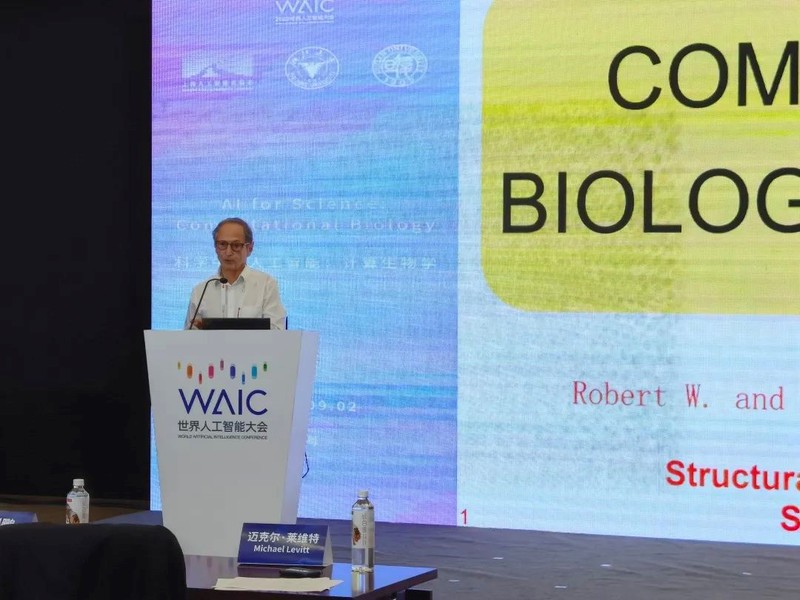
The following talk was given by Professor Ruhong Zhou, who talked about Neoantigens and Autoantigens. Professor Zhou's team combined biophysical theory, high-performance computing and artificial intelligence to decipher the mechanisms of immune-related biomolecular interactions and apply them to drug design. Through collaborations with Harvard Medical School and Johns Hopkins University, his team has helped explain the differences in response to tumor immunotherapy among different populations, and has made a number of advances in the vaccines developments based on immune-activating peptide molecules.
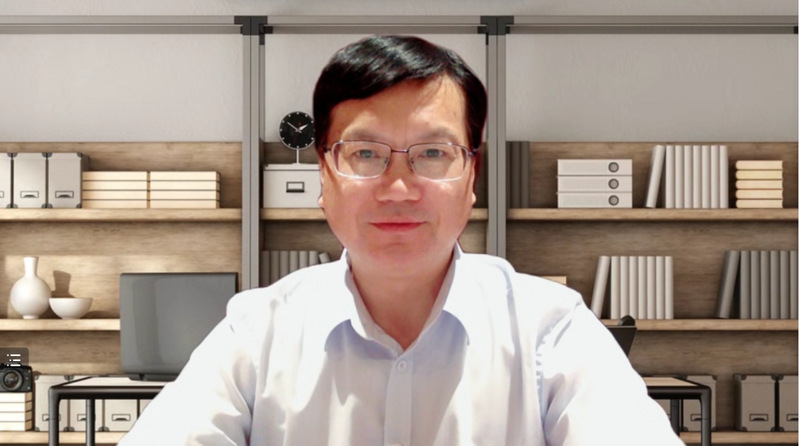
The second half of the forum was chaired by Professor Zhou.
Professor John Zhang talked about modelling and Prediction of Protein-Ligand and Protein-Protein Interaction. Professor Zhang introduced that computer modelling of biological macromolecules can be derived from physical models, or by machine learning algorithms, and explained the implementation and application of various algorithmic models.
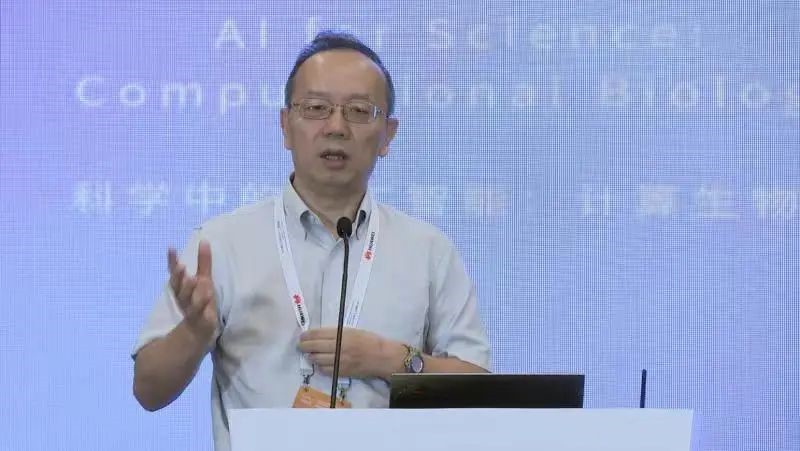
Last but not least, Professor Jianpeng Ma talked about methods for predicting protein structures and biomolecular complexity. Professor Ma emphasised the balance between computer simulations and experiments, and showed how the process from targeted bioinformatics to static structures and kinetic simulations to molecule optimization can be effectively integrated by machine learning algorithms with artificial intelligence, structural biology, simulations of complex systems at multiple scales assisted by wet experiments, high-performance chemistry, and physical computing.
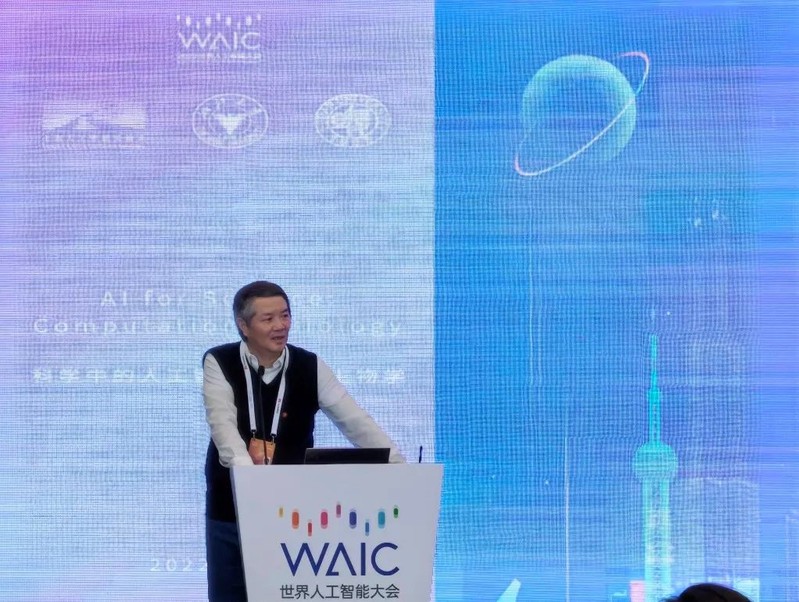
The talks were well-received and audience were enthusiastic about exchanging thoughts with speakers at coffee break and after the forum.
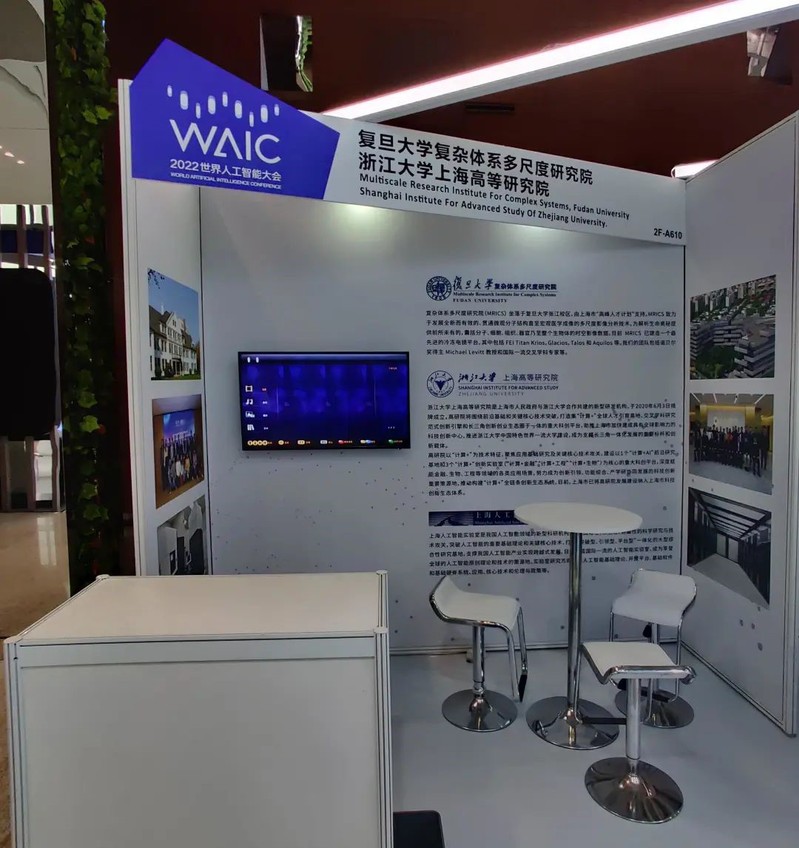
Shanghai Institute for Advanced Studies, Zhejiang University and Multiscale Research Institute for Complex Systems, Fudan University jointly set up a booth during WAIC 2022 to showcase the development of cutting-edge technologies in artificial intelligence and 'computing+' .

